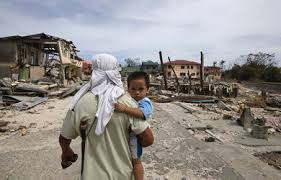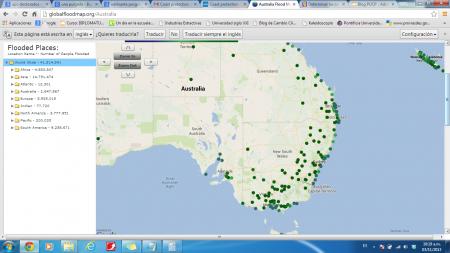El enfrentamiento entre los países en desarrollo y los desarrollados en la COP19 en Varsovia es solo el principio del sálvese quien pueda. Nadie hará nada por nosotros, solo nos tendremos a nosotros mismos para enfrentar las consecuencias del cambio climático.
Desde principios de 2013 se cocinaba una propuesta para crear una nueva división de las Naciones Unidas con dos objetivos, establecer un programa por país para fijar metas en las emisiones de gases de efecto invernadero, y uno segundo constituir un fondo que permita financiar programas de adaptación, transferencia de tecnologías, supervisión y regulación del mercado de bonos de carbono, y socorro frente a las consecuencias del cambio climático en los países en desarrollo.
Puede al respecto leerse el artículo de Nancy Birdsall, luego de Doha 2012, sobre el posible papel de China y los BRIC en la lucha contra el cambio climático. La idea inicial supone un organismo financiado por la países en desarrollo, y hasta ubicado en la segunda ciudad de alguno de los países en desarrollo o emergentes, pero las cosas siempre son más complejas, a la mayoría sino a todas las potencias (incluyendo Rusia) no les gustaría tener a China como el nuevo líder mundial.
La discusión en Varsovia de este fin de año se ha puesto tensa luego de que los países en desarrollo liderados por China y los BRIC propusieran compensaciones por los daños producidos por los fenómenos climáticos extremos, como el tifón Yolanda en Filipinas, y que los países desarrollados se niegan a discutir hasta después del 2015. Y menos dispuestos están a crear una agencia de naciones unidas que maneje el tema de las indemnizaciones, o que establezca límites a las emisiones futuras.

Todo esto demuestra que los escépticos siguen dominando las políticas en los países desarrollados, que si bien reconocen su responsabilidad (en particular la UE), no tienen propósito de enmienda. Hay un año para tratar de encontrar un camino y comenzar a preparar en Lima 2014 las bases de lo que debe ser un nuevo acuerdo mundial sobre el cambio climático.
FFR
